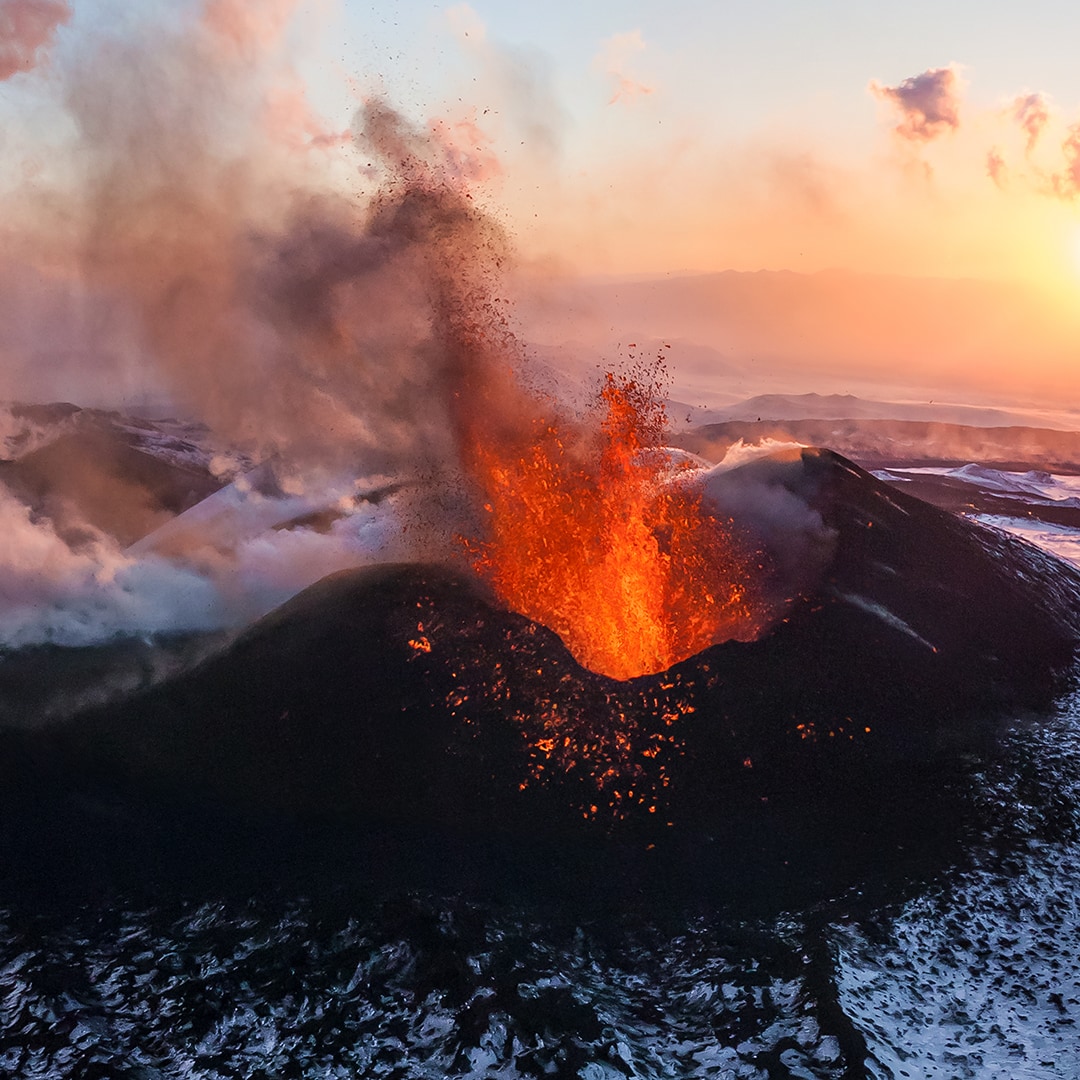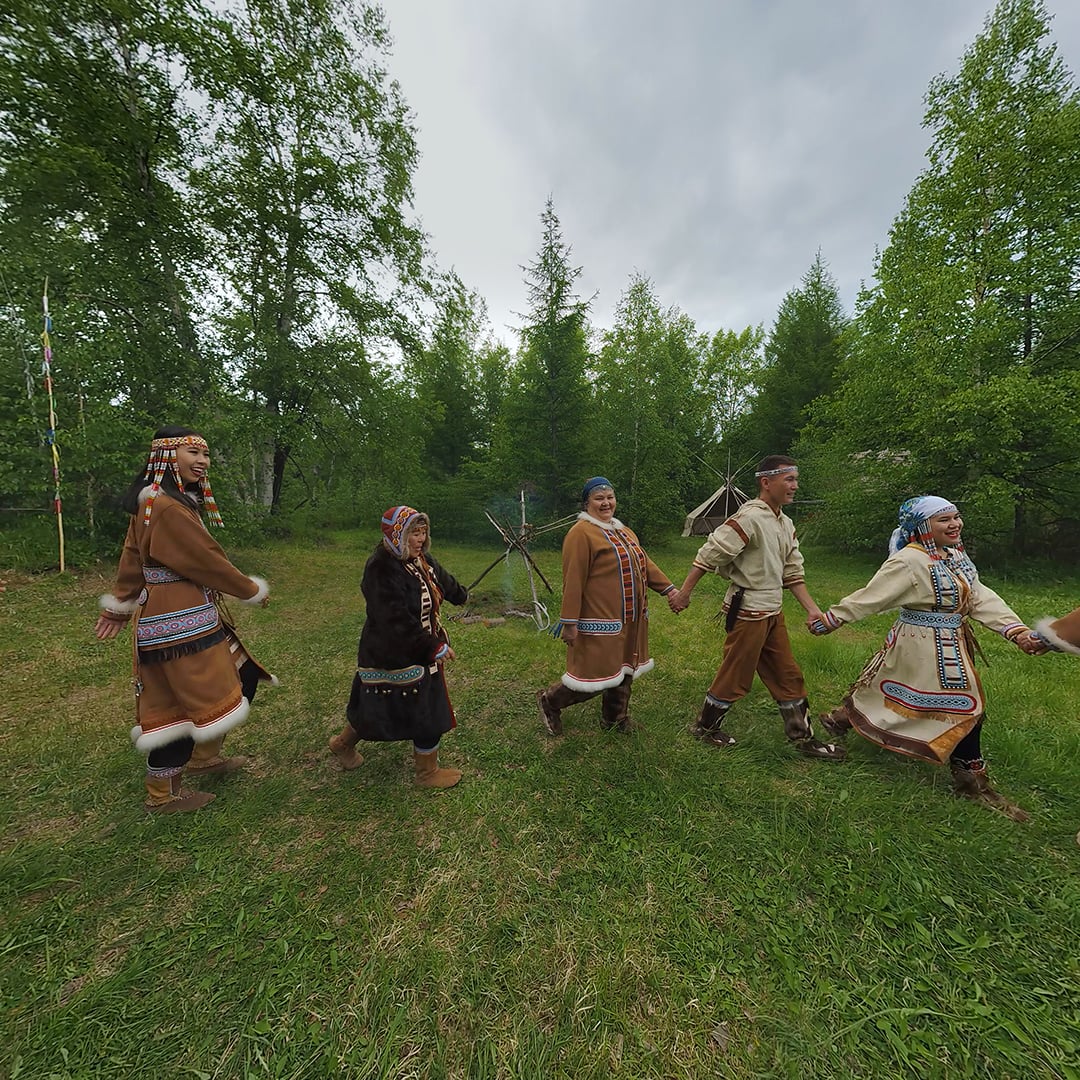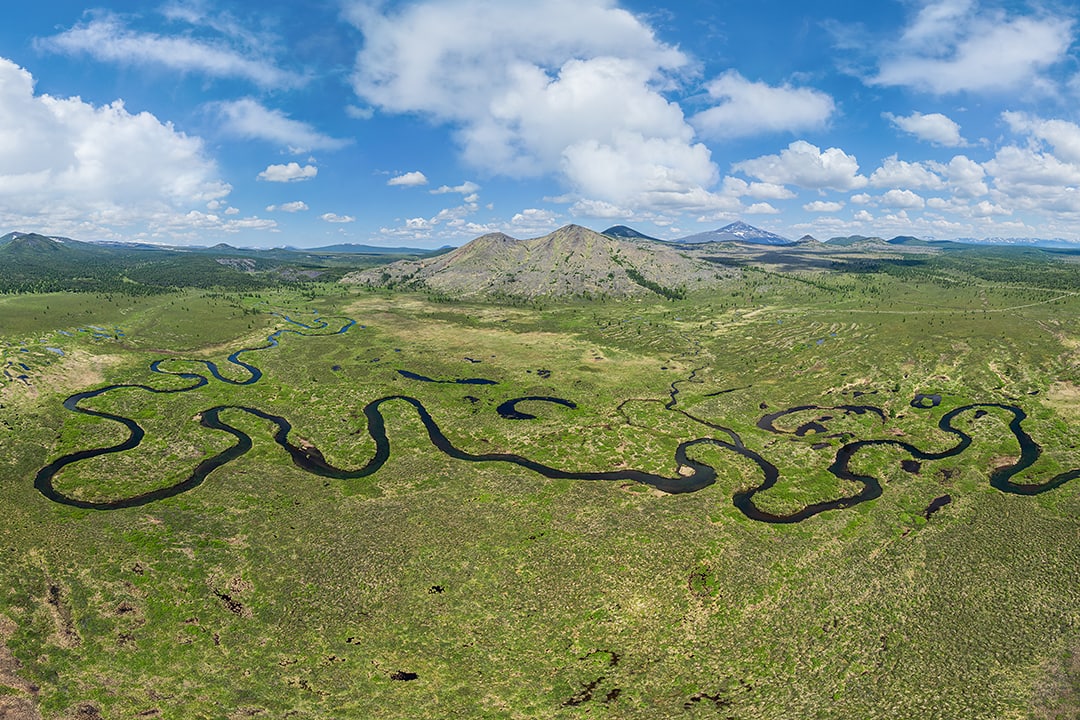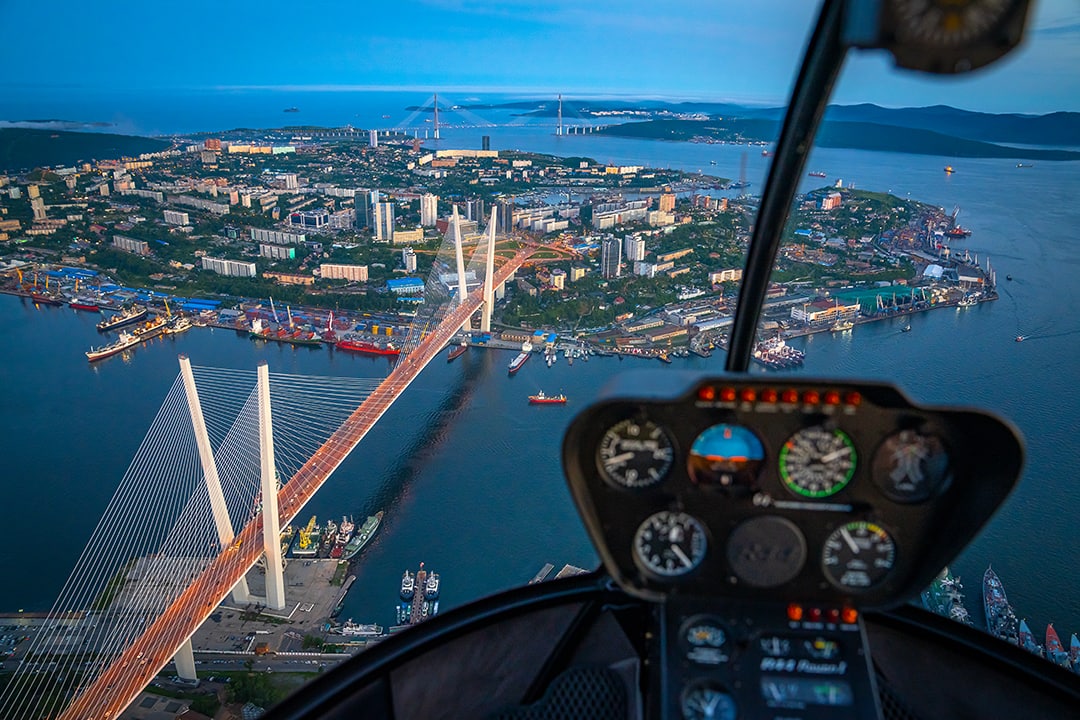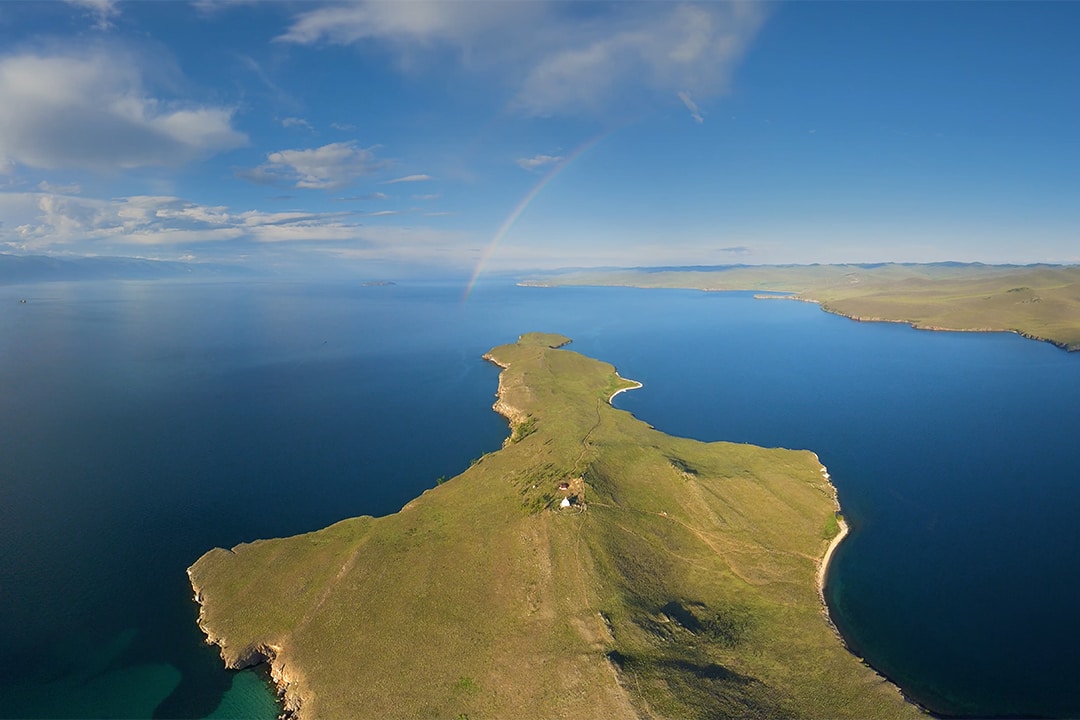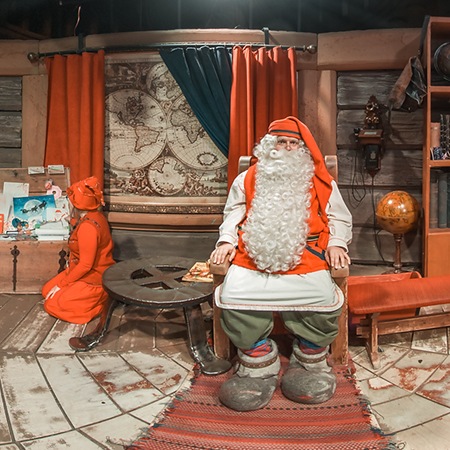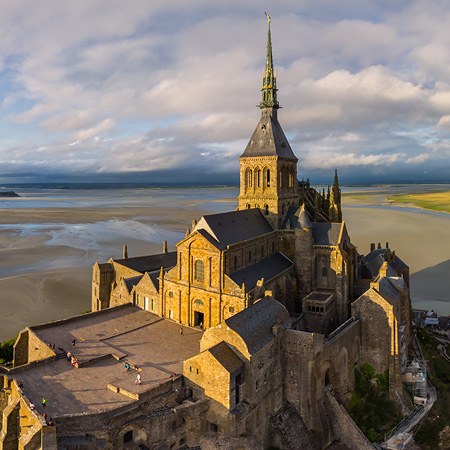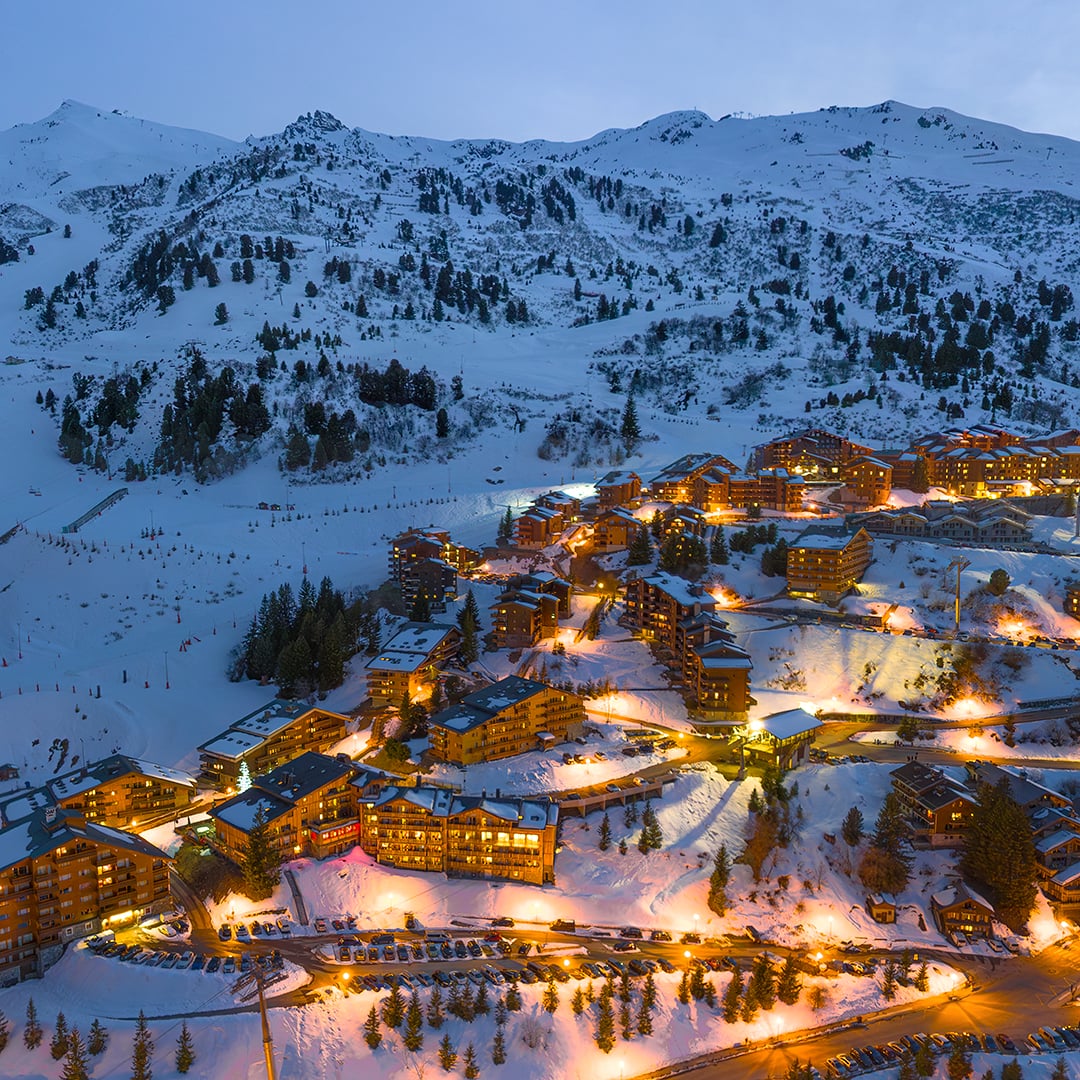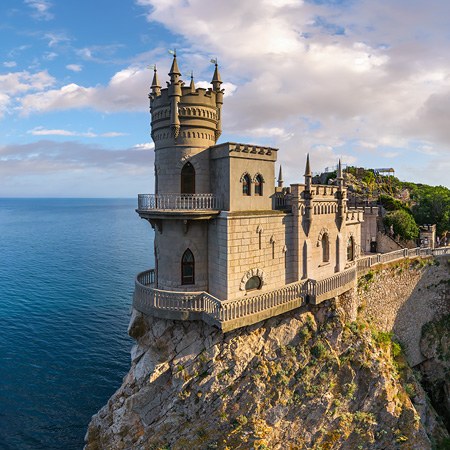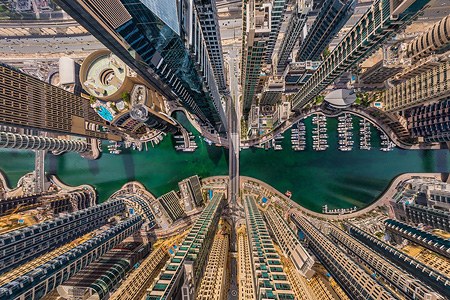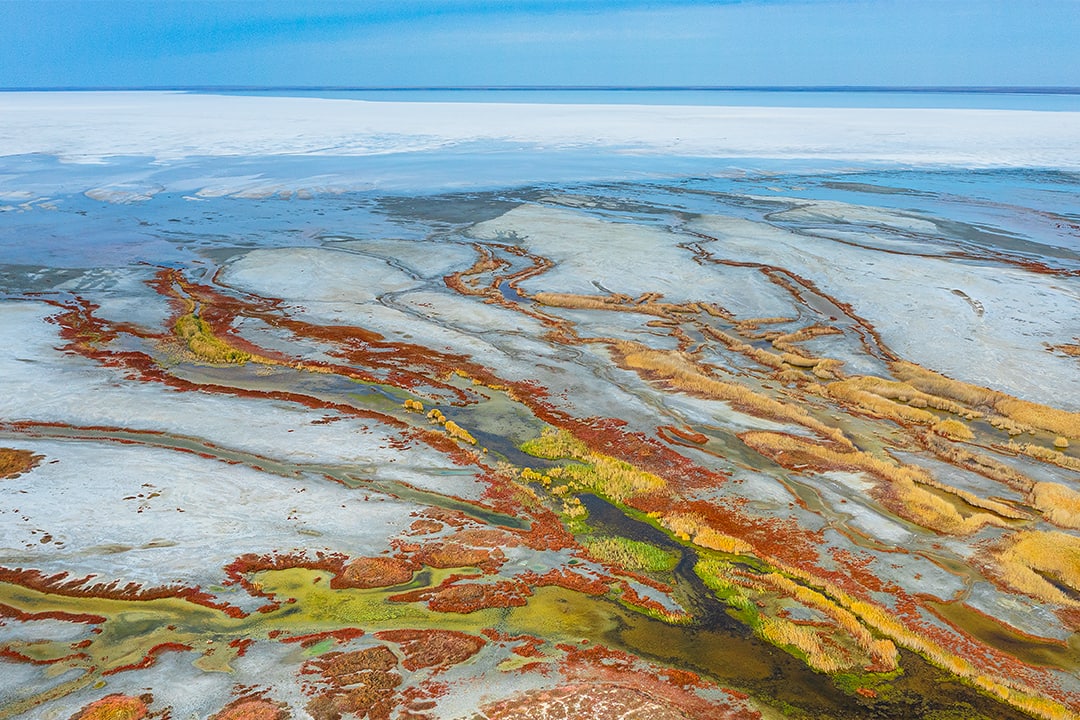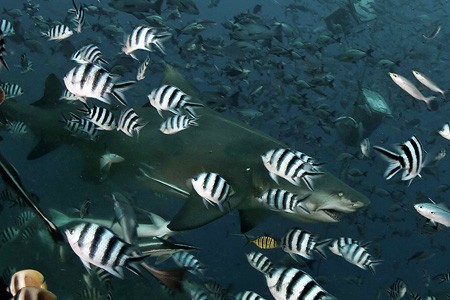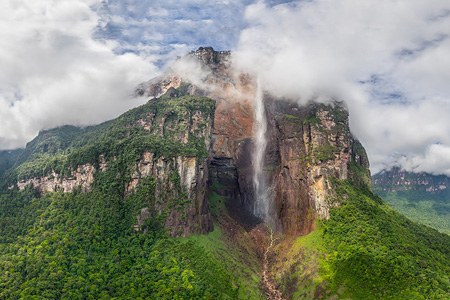Moscow State University
The shooting of Moscow State University (MSU) was made with a radio controlled helicopter at dawn. We asked to bring us coffee at a café near the ski jump. While our coffee was being prepared we programmed the viewpoints, which coordinates had been transferred from Google maps, in the helicopter's memory. We hadn't even drink coffee when the helicopter flew back with the photos taken. The coprocessor Nvidia Tegra 600 had been integrated into the helicopter which was automatically stitching the panoramas in order not to waste time while the helicopter was moving between the viewpoints. This idea was created by Sergey Semenov who used to stitch them by himself with an iPad for a long period of time :)
Radio Controlled by Stas Sedov.
Photo by Sergey Semenov.
And now, several historical facts...
The main building of Moscow State University is not only one of the most famous Moscow buildings but also the biggest Stalin style high-rise building in the capital city. Moreover, 37 years long it had been the highest building in Europe till 1990, when in Frankfurt the MesseTurm skyscraper was built.
The main university building was being built since 1948 till 1953, it is 182 m high and its spire is 240 m high. The weight of the star on the spire is only 12 tons! The entrance to the top is opened and everyone can climb there and observe the Luzhniki, parks, arboretum, fountains and new MSU's library.
The complex on the Sparrow Hills is a part of Stalin Style High-Rise Buildings grandiose project. Their construction itself was devoted to demonstrate the power of the young state-winner which was developing skyscrapers' construction more efficiently than even most Western countries. The fact is that in 1940-s there were no high buildings in Moscow: the capital could afford to build only objects with a few floors and the only high buildings were the bell tower named after Ivan the Great and Moskva hotel...
By the way, initially the spire wasn't in the plan of construction. According to the creative idea, on the top of the main university building had to be put the statue of M.V. Lomonosov. Those days, when the architectures showed the drawings to Stalin and hinted at the statue would have a portrait likeness to the leader; Stalin refused that idea having insisted on the spire along with the other high-rise buildings which were being constructed those years in Moscow. As a result, a splendid architectural complex including seven identical towers appeared in the capital. They were also called Seven Sisters.
Every high-rise building has its own function: some of them serve as apartment houses and hotels, others - as ministries. As for the university tower, there are Geological and Geographical Faculties as well as the Faculty of Mechanics&Mathematics, administration, library, assembly hall and recreation center. The biggest Moscow clocks are on the tower of MSU's main building. Their minute hand is 4.1 meters long and weight is 39 kilograms!
Many students and lecturers can share the legends about the main building of MSU. Most people say that many times they have seen ghosts there. They say that there are caves under the building and their depth equals the height of the building. The suggestions about what is located under the ground differ. From one point of view, there are secret laboratories. The second suggestion is that there is a landing site for airplanes. The third opinion supposes that there is a space ship. According to the forth idea, there is exactly that giant statue of Stalin-Lomonosov made of pure gold...
In order the huge MSU's building can safely stands on unstable ground the great foundation pit was dug for the base. Then that foundation pit was filled with liquid nitrogen and the refrigerators were put there and then the building itself was built. If the refrigerators are off, this masterpiece of Stalin style architecture will flow away into the Moskva River. In the 70-s there was an accident on the fridge station: the energy power system had been turned off. The building began to crack because of partial unfreezing. The repair men signed the confidentiality of data.
The secrecy of those constrictions is so big that since the day of their foundation they have been under control of special agencies: first, under control of the 15-th department of the CSS (KGB) and now - under control of the special "underground" department of the FSS (FSB). The place where the refrigerators are located is called the Third Basement because there are two more basements above it. The third basement of MSU is connected with an underground city Ramenki and "government" underground station Metro-2 which is the part of the alternative underground system built in the times of Stalin with the purpose of government emergency evacuation. Four fountains which are situated close to Lomonosov's monument are airshaft of that secret underground line.
They say that in Soviet times above the 32-nd floor the officers of the CSS worked there. What kind of work did they do? The answer was unknown even for MSU's rector. They also say that the spire itself and star were built in the manner of anti-aircraft guns convenient allocation during a war. Meanwhile, now there is nothing but star's base, spiral stairs and webs.
And even the question about the number of the floors is still indefinite. Some sources say that there are 36, another - 37! But in spite unknown number of the floors, it is absolutely right that on the last floor, under the spire with golden star there is MSU's Museum of Earth Science. The famous traveler Sergey Dolya, having visited this science temple, published an interesting photo-reportage (http://sergeydolya.livejournal.com/62011.html) which shows us the museum's interiors and views from above. In our opinion, it nicely accompanies our panoramas (may be, vice versa :)).
Here they are the links to other our aerial Moscow panoramas:
1) Virtual tour over Moscow Encircling Highway: MEH and Interchanges
http://www.airpano.com/360Degree-VirtualTour.php?3D=MKAD-Moscow-Russia
2) Yauza, Ramenki, Southern Port
http://www.airpano.com/360Degree-VirtualTour.php?3D=Moscow-Virtual-Tour-Russia
3) In May 2010 near the Crocus-City the first in the world 1 gig pixel panorama was shot from the helicopter. It shows the Kremlin, the Cathedral of Christ the Savior, Novodevichiy Convent, the TV Tower of Ostankino and many other places of interest.
http://www.airpano.com/360Degree-VirtualTour.php?3D=Moscow-Krokus-Giga-Panorama
4) This sphere shot from the height of 1000 m which shows most part of Moscow and regions.
http://www.airpano.com/360Degree-VirtualTour.php?3D=Moscow-from-1000m-Russia
5) This spring we have shot the panorama of Novodevichiy Convent
http://www.airpano.com/360Degree-VirtualTour.php?3D=Moscow-Novodevichy-Convent
6) The same period the shooting over Bolotnaya Square has been realized (Photos by Dmitriy Chistoprudov, radio control by Stanislav Sedov)
http://www.airpano.com/360Degree-VirtualTour.php?3D=Moscow-Kremlin
7) It is worth to view one of the photos by Sergey Semenov devoted to the rehearsal of the Victory Parade of May 9.
It had success on the exhibition World Seen by the Russians held in Moscow, on Tverskoy Boulevard in May-June 2011. AirPano's participants are Oleg Gaponyuk, Mike Reyfman and Sergey Semenov. Besides, one of the exhibition's participants is the president of the Russian Federation Dmitry Medvedev. Now the exhibition has left for St. Petersburg.
28 July 2011
Read more
Photogallery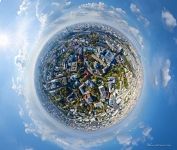 Old Moscow, Kitay-gorod. Planet
Old Moscow, Kitay-gorod. Planet
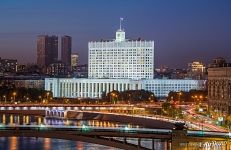 The White House
The White House
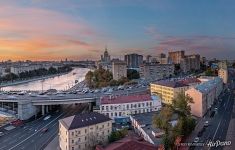 Garden Ring
Garden Ring
 Moscow
Moscow
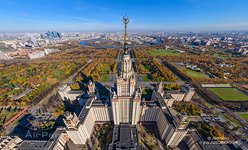 Moscow State University #1
Moscow State University #1
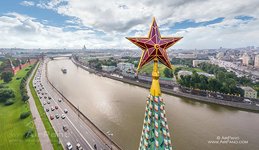 Kremlin's star
Kremlin's star
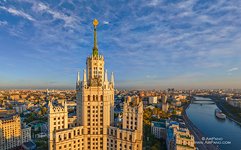 Stalinist skyscrapers. Kotelnicheskaya Embankment Building #2
Stalinist skyscrapers. Kotelnicheskaya Embankment Building #2
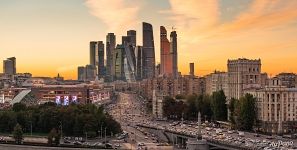 Moscow Panorama
Moscow Panorama
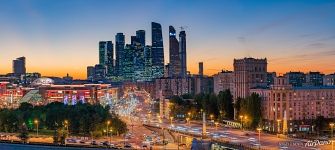 Moscow City
Moscow City
 Moscow Kremlin in winter
Moscow Kremlin in winter
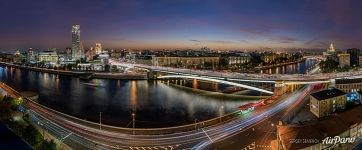 Moscow at night
Moscow at night
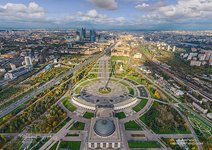 Victory Park on the Poklonnaya Hill #1
Victory Park on the Poklonnaya Hill #1



